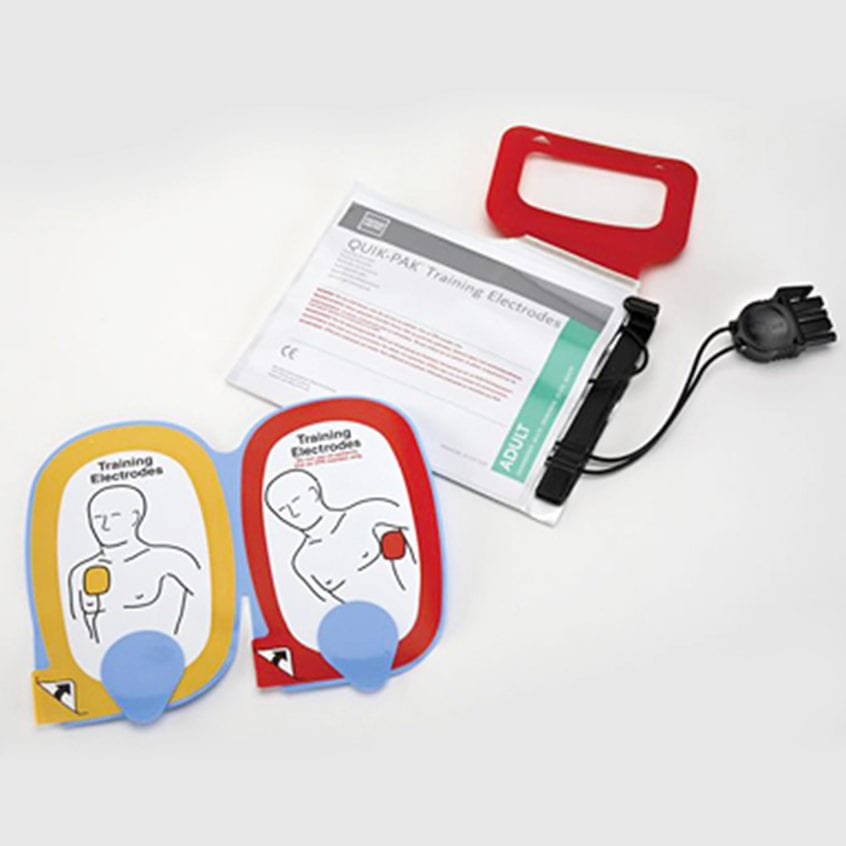Why AED Pads Are Important and How Often They Should Be Replaced

Automated External Defibrillators (AEDs) are life-saving devices that play a crucial role in the survival of individuals experiencing sudden cardiac arrest. One of the key components of an AED is the set of adhesive pads, also known as electrode pads, that deliver the electric shock necessary to restore a normal heart rhythm. Understanding the importance of AED pads and the frequency of their replacement is essential for ensuring the device’s effectiveness when needed most. At AED One-Stop Shop, we provide top of the line AED Pads that you and your safety deserve.
The Role of AED Pads
AED pads are designed to conduct an electric current from the AED to the patient’s heart. When someone suffers from sudden cardiac arrest, their heart stops beating effectively, and every minute without intervention decreases their chance of survival by 10%. AED pads are crucial for several reasons:
- Accurate Diagnosis: AED pads contain sensors that detect the heart’s rhythm. The AED uses this information to determine whether a shock is needed. Properly functioning pads ensure the device can accurately diagnose the patient’s condition.
- Effective Shock Delivery: The pads must adhere firmly to the patient’s chest to deliver the electric shock effectively. Poor adhesion can result in inadequate shock delivery, reducing the chances of reviving the patient.
- Safety: High-quality AED pads are designed to ensure that the electric shock is delivered safely and precisely, minimizing the risk of burns or other injuries to the patient.
- User Guidance: Many AED pads come with clear diagrams or instructions to assist even untrained bystanders in correctly placing them on the patient, which is critical during a high-stress situation.
When to Replace AED Pads
AED pads are not designed to last indefinitely. They have a shelf life and should be replaced regularly to ensure they function correctly in an emergency. Here are some key factors to consider:
- Expiration Date: Every set of AED pads comes with an expiration date, typically ranging from 18 to 24 months from the date of manufacture. It is essential to regularly check this date and replace the pads before they expire. Expired pads may lose their adhesive properties or the conductive gel might dry out, rendering them ineffective.
- Usage: If the AED has been used in a rescue attempt, the pads must be replaced immediately afterward. Used pads cannot be reused, even if they appear intact.
- Routine Checks: Conduct regular inspections of your AED and its accessories. Most AED units perform self-checks and will indicate if the pads need replacing. However, it’s a good practice to manually check the pads periodically to ensure they are in good condition.
- Environmental Factors: Pads stored in extreme conditions, such as very high or low temperatures, may degrade faster than those kept in a stable environment. Ensure your AED and its pads are stored according to the manufacturer’s recommendations.
Best Practices for AED Maintenance
To keep your AED ready for an emergency, follow these best practices:
- Regular Inspections: Conduct monthly inspections of your AED, checking the battery, pads, and overall condition of the device. Ensure that the pads are within their expiration date and that the AED indicates they are ready for use.
- Training: Ensure that staff or regular users are trained in AED operation and are aware of the importance of checking and replacing pads. Training should include recognizing the signs that pads need replacement.
- Documentation: Keep a log of your AED maintenance activities, including pad replacements and battery checks. This documentation can help track when pads were last replaced and when the next replacement is due.
- Stock Spares: If you are responsible for multiple AED units or in a high-traffic area, consider stocking spare pads to ensure immediate replacement if needed.
AED pads are a vital component in the life-saving function of an AED. Regularly replacing expired or used pads ensures that the device will function correctly in an emergency, potentially saving a life. Buy your new AED Pad today at AED One-Stop Shop with our amazing variety of choices! By understanding the importance of AED pads and maintaining them diligently, you can be prepared to act swiftly and effectively in the event of a sudden cardiac arrest.


